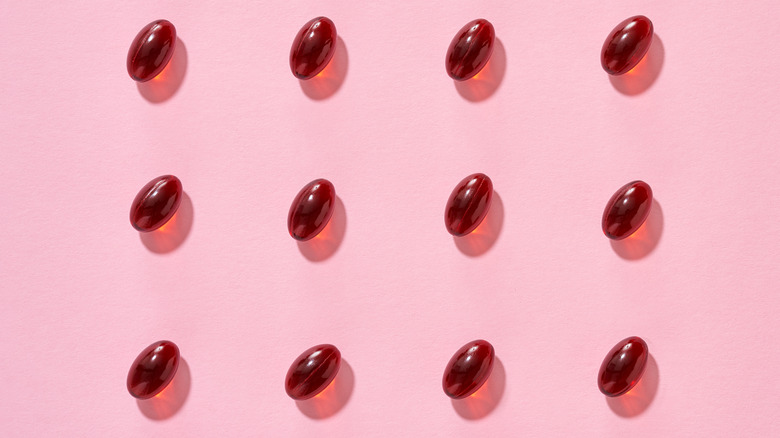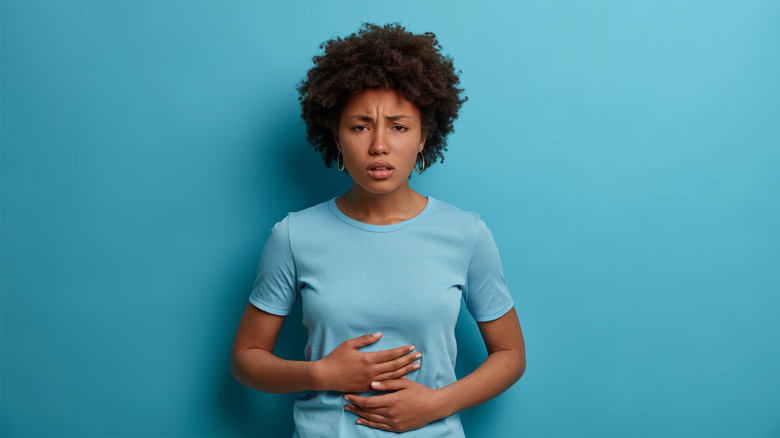Astaxanthin Is The Latest Antioxidant, But Is It Actually Good For You?
The antioxidants vitamin C and vitamin E have shared the spotlight when it comes to skincare and immune health. While they've certainly earned their shine, another nutrient is claiming its place on stage: astaxanthin. This antioxidant is part of the carotenoids family which, according to Healthline, are fat-soluble pigments that give fruits, vegetables, plants, and algae their yellow, red, and orange hue. The body converts carotenoids into vitamin A and uses these nutrients to provide eye health and cardiovascular health and help prevent cancer.
Other popular carotenoids are beta-carotene, zeaxanthin, canthaxanthin, and lutein but they don't hold a candle to astaxanthin. According to a 2014 study by Mar Drugs, astaxanthin is 10 times more active in producing antioxidants than the carotenoids mentioned and 100 times better than a-tocopherol. It's also 100 times better than vitamin E (per Advances in Experimental Medicine and Biology). In comparison to vitamin C, Yahoo! says astaxanthin is 6,000 times stronger and, based on a 2020 study published by Biomed Pharmacother, it can help ensure COVID-19 doesn't become chronic or fatal.
Possible side effects of astaxanthin
Oxidative Medicine and Cellular Longevity published an article in 2019 supporting the fact that astaxanthin is safe and effective in addressing a wide range of beauty and health concerns caused by oxidative stress and age-related diseases. The article states that there have been "no documented negative effects" throughout the 20 years that it's been used, but some questions have come to the surface.
According to WebMD, astaxanthin can increase bowel movements and can cause stool to have a red color. Taking too much can possibly lead to stomach aches. A normal dosage consists of 4 to 18 mg per day for up to 12 weeks. If supplements aren't your jam, Healthline says foods like algae, trout, yeast, shrimp, and salmon contain astaxanthin.
WebMD also says there isn't substantial evidence concerning whether or not astaxanthin is safe for women who are pregnant or breastfeeding. Furthermore, they caution that astaxanthin could interfere with medications that are changed and broken down by the liver, so if you are pregnant or on medication be sure to speak with your healthcare provider to discern if this nutrient is safe for you.


